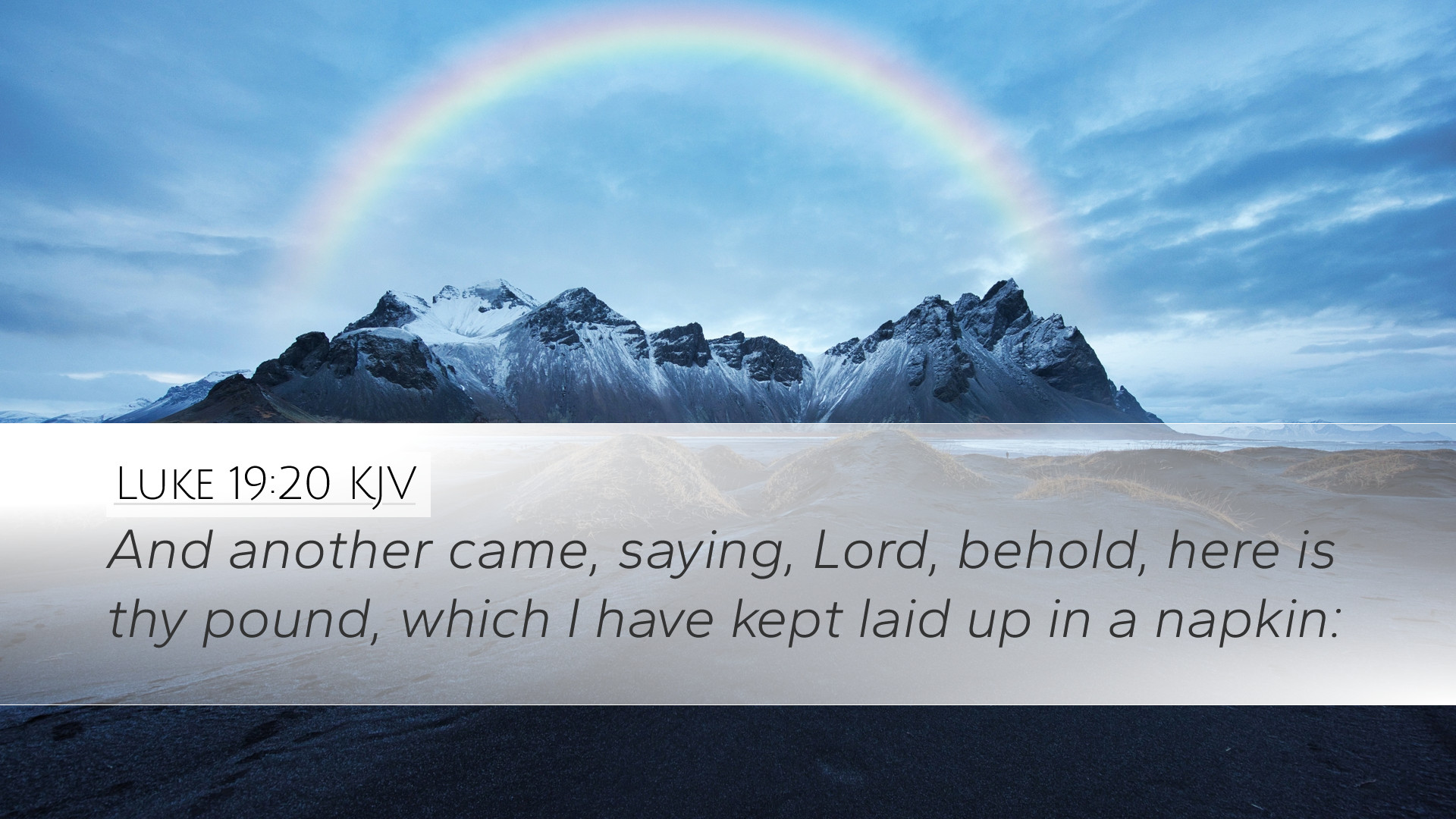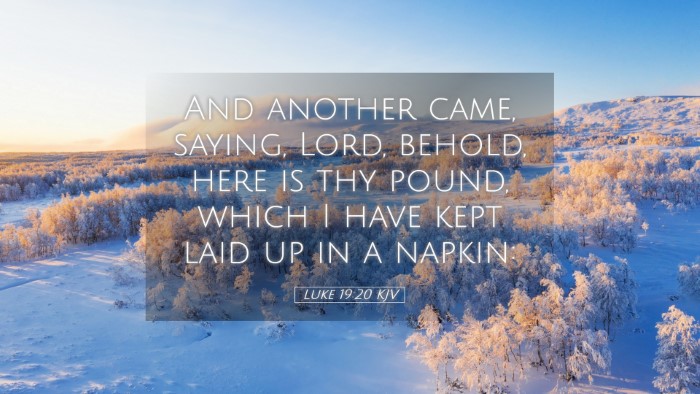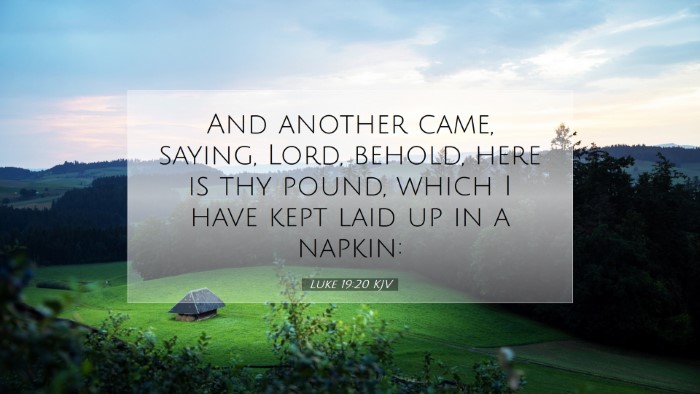Commentary on Luke 19:20
Bible Verse: Luke 19:20 - "Then another came, saying, ‘Master, here is your mina, which I kept laid away in a handkerchief.’"
Introduction
The parable of the ten minas, found in Luke 19:11-27, is a profound illustration of stewardship and accountability. In this particular verse, we focus on the servant who brings back the master’s mina without any profit, which launches a discussion on responsibility, fear, and the consequences of inaction. This commentary will weave insights from public domain commentaries, primarily drawing from Matthew Henry, Albert Barnes, and Adam Clarke to explore the deeper meanings and theological implications of this text.
Contextual Overview
In the preceding verses, Jesus shares the parable in response to misunderstandings about the nature of His kingdom. The ownership of the mina represents the gifts, opportunities, and responsibilities God entrusts to His servants. This parable aims to correct the misconception that the kingdom was to be immediately established in a worldly sense.
Exegesis of the Verse
Understanding the Servant's Attitude
When the servant returns the mina to his master, he presents it not as a token of success but as evidence of his inactivity. According to Matthew Henry, this servant embodies "the worst kind of sloth," illustrating a failure to engage with what the master has given him.
Fear as a Justification
The servant's excuse centers on fear: he kept the mina safe because he was afraid of his master. Albert Barnes emphasizes that this fear is misplaced; it stems from a misunderstanding of the master’s character. If the servant genuinely understood his master's expectations, he would have acted differently.
Symbolism of the Handkerchief
Keeping the mina in a handkerchief symbolizes both a lack of initiative and a poor investment strategy. Adam Clarke notes that in ancient times, wrapping money in a cloth was common, yet doing so without putting it to good use shows a significant disregard for the master's interests. This serves as a cautionary reminder to believers about the risks of complacency.
The Principle of Stewardship
The mina entrusted to the servant is a vivid representation of everything God gives to humanity—time, talent, and treasure. Matthew Henry points out that every believer is accountable for how they use these gifts. The expectation is not only to safeguard them but to grow and multiply them for the kingdom’s advancement.
Theological Implications
Accountability Before God
This passage teaches us that God holds us accountable for our actions. Each person will be judged according to how they have stewarded their resources. Albert Barnes suggests that the conversation regarding the unprofitable servant reveals the seriousness with which God regards our responsibilities.
The Nature of Fear
The servant's fear of failure leads to inaction—a principle echoed throughout Scripture. Fear is often a tool used by the enemy to paralyze believers from fulfilling God's calling. Adam Clarke invites readers to reflect on how their fears might hinder their ministry and personal growth.
The Master’s Character
The core issue in this moment is the servant's flawed perception of the master. Recognizing God's true nature as benevolent and just is essential for fruitful living. This misunderstanding leads to regret and loss. Matthew Henry highlights the importance of knowing God’s character and serving Him out of love rather than fear.
Practical Applications
- Engagement with Gifts: Believers are encouraged to actively engage with their God-given talents and resources.
- Overcoming Fear: There is a call to confront and overcome fears that prevent action. Trusting in God’s provision can be a powerful motivator for faithfulness.
- Understanding God’s Nature: A right understanding of God’s character leads to a life of fruitfulness and peace.
Conclusion
Luke 19:20 challenges readers to reflect on their stewardship. The consequences of inaction based on fear are more profound than the act of engaging with risk. By considering the insights of established theologians, we are reminded of the importance of our responsibilities before God and encouraged to live active and fruitful lives as faithful servants of Christ. Ultimately, this parable not only serves as a warning but also as an invitation into a deeper relationship with our Master, who calls us to serve Him with diligence and faith.


